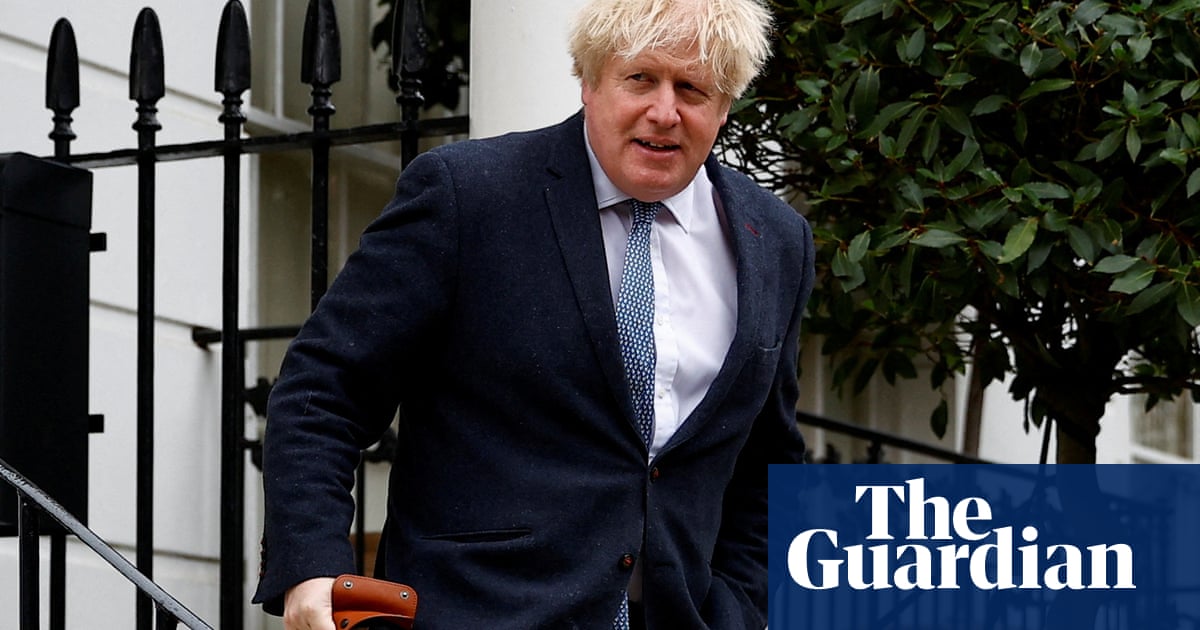
Boris Johnson has been accused of orchestrating a cover-up over the Greensill lobbying scandal after an official review issued a mild rebuke of former prime minister David Cameron while criticising a deceased senior civil servant.
The report drawn up by City solicitor Nigel Boardman also praised lobbying as part of a functioning democracy after admitting that the businessman Lex Greensill was given “extraordinarily privileged” access to Downing Street. However, Cameron and the late cabinet secretary Jeremy Heywood were criticised in the 141-page review.
Cameron “understated” the nature of his relationship with Greensill when lobbying officials and “could have been clearer” about his work for the the Australian financier, the report said.
It claims a covering memo to the prime minister in 2012 pointed to Lord Heywood as the person primarily responsible for Greensill being given a role in government.
But Boardman’s review has defended existing lobbying rules, saying that while there are improvements to be made, “the current system and those operating within it worked well”.
“Engagement between government and a wide range of interested parties, which many refer to as ‘lobbying’, is vital to the proper functioning of democracy,” Boardman said.
The report has shied away from criticising serving ministers and advisers who were lobbied by Greensill and Cameron, prompting strong condemnation from Labour. Angela Rayner, the party’s deputy leader, said the report had been set up as “a classic Boris Johnson cover-up and whitewash to protect the government”.
Boardman, 70, was appointed in April to run an independent investigation into government contracts and lobbying involving a number of senior Conservative politicians including Cameron, the chancellor, Rishi Sunak, the MP and former health secretary Matt Hancock and the peer Francis Maude.
The supply chain financier Greensill was given access to Downing Street when Cameron was the prime minister and Heywood was the cabinet secretary. After leaving government, Cameron became an adviser to Greensill Capital and lobbied ministers including Sunak for access to government-backed loans.
The report, totalling 141 pages, said: “It is clear from the evidence that I have reviewed that Mr Greensill had a privileged – and sometimes extraordinarily privileged – relationship with government.”
Boardman concluded that Cameron “could have been clearer about his relationship with Greensill Capital” in his communications with the Treasury, the Bank of England and officials.
Cameron told Boardman that Greensill Capital was paying him “a good amount of money every year” and he had equity and participated in a discretionary uncapped bonus scheme.
Boardman concluded that the former Conservative party leader “did not breach the current lobbying rules and his actions were not unlawful”, neither does the evidence appear to show he had a role in bringing Greensill into government.
The review also sheds new light on meetings involving Cameron and Hancock that took place in October 2019.
Hancock told Boardman that he had not expected other Greensill employees to be there and had thought he was just meeting Cameron. Cameron said that Hancock did know beforehand that he would be accompanied by colleagues including Greensill himself.
According to an email sent by Cameron to Hancock that was released to the review, Hancock was impressed by Greensill’s proposal to allow NHS workers to draw down on their salary early through an app.
The review claims that Heywood was “primarily responsible” for Greensill securing a role in government, during Cameron’s premiership.
There was mention of Greensill’s appointment to the Cabinet Office’s economic and domestic secretariat being referred to an “approvals board”, to which Heywood, who worked with the financier at Morgan Stanley, responded: “Sure – though it is bureaucracy gone mad!”
The review said Greensill was given official IT and security access for the Cabinet Office and, with Heywood’s support, for No 10.
The role in government provided Greensill “with a marketing platform for Greensill Capital’s business with the private sector”.
“It is unclear why Mr Greensill was permitted to remain an adviser to government on supply chain finance under these circumstances,” Boardman wrote.
Critics have claimed that Boardman should not have been in charge of the inquiry because of his close relationship with the government and the Conservative party – he has been a non-executive director at the Department for Business, Energy and Industrial Strategy and is a former Tory party candidate.
Reacting to the report, Suzanne Heywood, the widow of Lord Heywood of Whitehall, said the report was flawed, not least because no one was allowed to speak on her husband’s behalf.
“The conclusions of this review are a convenient diversion from the embarrassment the collapse of Greensill Capital continues to cause this government.
“Boardman has run a deeply flawed process from beginning to end, gagging representation for my late husband to facilitate his scapegoating, glossing over the ministerial approval of Francis Maude and the then government for Mr Greensill’s appointment,” she said.
Rayner said the terms of the inquiry had been limited to avoid a wider investigation of lobbying, privileged access and the revolving door between Whitehall and business.
“The rules that are supposed to regulate lobbying are completely unfit for purpose and require radical and immediate overhaul,” she said.
In April, Cameron accepted that he should have communicated with the government “through only the most formal of channels” rather than text messages to Sunak as he acknowledged missteps over the controversy.
Responding to the report, Cameron said he was “pleased that the report provides further confirmation that I broke no rules”.
“I have said all along that there are lessons to be learnt, and I agree on the need for more formal lines of communication.”












